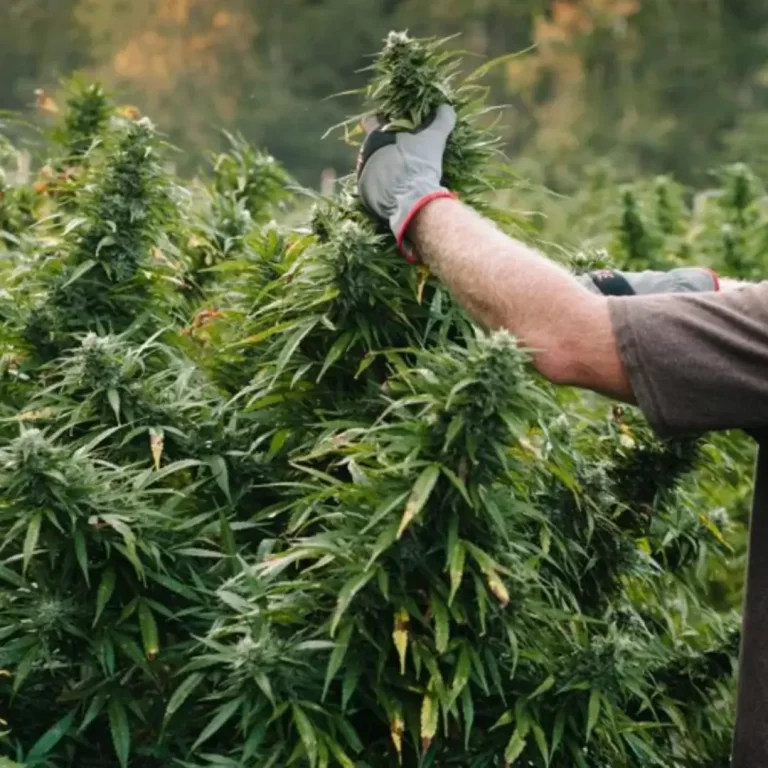
Ohio Just Legalized Recreational Cannabis. Now What?
- Cannabis News
- Cannabutter Digest
Despite a last-minute media blitz by Governor Mike DeWine (R) urging voters to reject Issue 2, Ohio voters turned out in droves to pass a measure to legalize recreational marijuana in the Buckeye State. The ballot measure passed with 57 percent of the vote, meaning Ohio becomes the 24th state in the nation to legalize marijuana for adult use.
The election results are a significant victory for The Coalition to Regulate Marijuana Like Alcohol and marijuana advocates who have tirelessly fought for years to legalize cannabis, jumping through bureaucratic hoops and red tape to get to this moment. However, plans may already be in the works to take the teeth out of the newly passed ballot issue. Ohio may have just legalized recreational cannabis, but where do the state and the cannabis industry go from here?
A Historic Vote
It has been a long and bumpy road for the Coalition to Regulate Marijuana Like Alcohol to get to this historic point. Despite significant setbacks and bureaucratic challenges by Republican lawmakers in the state, the organization finally got marijuana reform on the ballot, and Ohio voters overwhelmingly responded at the polls.
Passing Issue 2 means that cultivation, manufacturing, testing, and retail sales of cannabis become legal in Ohio. Adults 21 and older can grow up to six plants per person and 12 plants per residence. Residents can also possess up to 2.5 ounces of cannabis or 15 grams of marijuana extract. Provisions of the newly passed law legalizing marijuana are set to take effect on December 7th, and regulators must begin issuing retail cannabis licenses by late 2024. A 10 percent tax will be imposed on all cannabis purchases, generating an estimated $276.2 million to $403.6 million in new tax revenue for the state. The emerging new cannabis retail industry may also bring close to 3,300 jobs to Ohio within the first year of legalization.
Where does the new tax revenue go? The law creates five new funds in the state treasury. Money generated by legalized marijuana sales will get funneled into the adult use tax fund, the cannabis social equity and jobs fund, the host community cannabis fund, the Division of cannabis control and Tax Commission fund, and the substance abuse and addiction fund.
A spokesperson for the Coalition to Regulate Marijuana Like Alcohol says that voters spoke loud and clear on election day. He also says the people of Ohio want to bring in new tax revenue while crushing the illicit drug market.
Opposition Isn’t Ready to Admit Defeat
What’s next for the budding Ohio cannabis industry? The newly passed law takes effect 30 days after the election, meaning that on December 7th, cannabis legalization becomes the law of the land. State regulators can issue recreational cannabis licenses to existing medical cannabis applicants within nine months. Additional licenses for other retail applicants can occur within two years. Municipalities also have the power to decide whether to allow cannabis sales within their borders.
However, the celebration by marijuana advocates could be short-lived. Although the election results are a significant setback to state Republicans strongly opposed to cannabis legalization, they still have a few tricks up their sleeves. As a citizen-initiate stature, the new marijuana law is subject to change by lawmakers. And since Republicans still control the state legislature, they could change the law or repeal it entirely.
Already, Republican Senate President Matt Huffman is saying he thinks there is “questionable language” in the measure regarding THC limits. He calls the new law a “cash grab” by the marijuana industry. The comments set the stage for a potential legislative showdown over the law where Republicans could subvert the will of the voters in Ohio.
Many Republican lawmakers and the governor oppose marijuana reform, meaning there is potential that the jubilation over legalization might be short-lived. However, lawmakers may also want to tread carefully. Issue 2 passed by a 13-point margin, some even going so far as to call it a landslide victory for cannabis reform. Republicans in power who choose to disregard the will of the people may find themselves fighting an uphill battle to return to Columbus in 2024. At least a handful of Republicans are up for reelection in 2024, meaning if they push forward with repealing marijuana reform passed by voters, they could potentially face a reckoning at the polls next election cycle.
Could Ohio Be Hit with Industry Boom or Bust?
The future of the cannabis industry is still up in the air both politically and economically. Many states are experiencing a marijuana bust. Marijuana cultivators and retailers, particularly along the West Coast, find themselves grappling with tanking retail prices, overregulation, stiff competition, and a cannabis surplus. The bust hit California, Oregon, Washington, and Colorado particularly hard, with some retailers forced to shut their doors.
Additionally, cannabis retailers across the country continue to struggle because Congressional infighting, power struggles, and looming government shutdowns continue to push measures like the SAFER Banking Act – giving them access to the banking system, which federal law currently blocks them from – onto the back burner.
However, there is some good news for the emerging cannabis industry in Ohio. States that enact cannabis reform laws see a sales and state revenue boom within the first year or two of legalization. Maryland recently allowed recreational marijuana and saw $84.95 million in adult-use sales between July 1st and July 30th alone. Retail marijuana in Connecticut began on January 10th, 2023. Even though the cost of adult-use cannabis products has gone down in the state since sales started, revenue has nearly doubled since January.
If Ohio follows a similar pattern, sales figures could be excellent during the first few years of marijuana legalization. Although now is an exciting time for marijuana advocates in the Buckeye State and across the nation, there is still work to be done to ensure marijuana remains legal in Ohio.
Are you curious about the future of the cannabis market in Ohio? Stay up-to-date on this story and others by bookmarking Cannabutter Digest. We’re the home of cannabis news, recipes, and product reviews.






